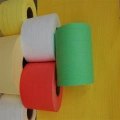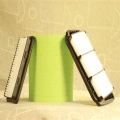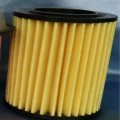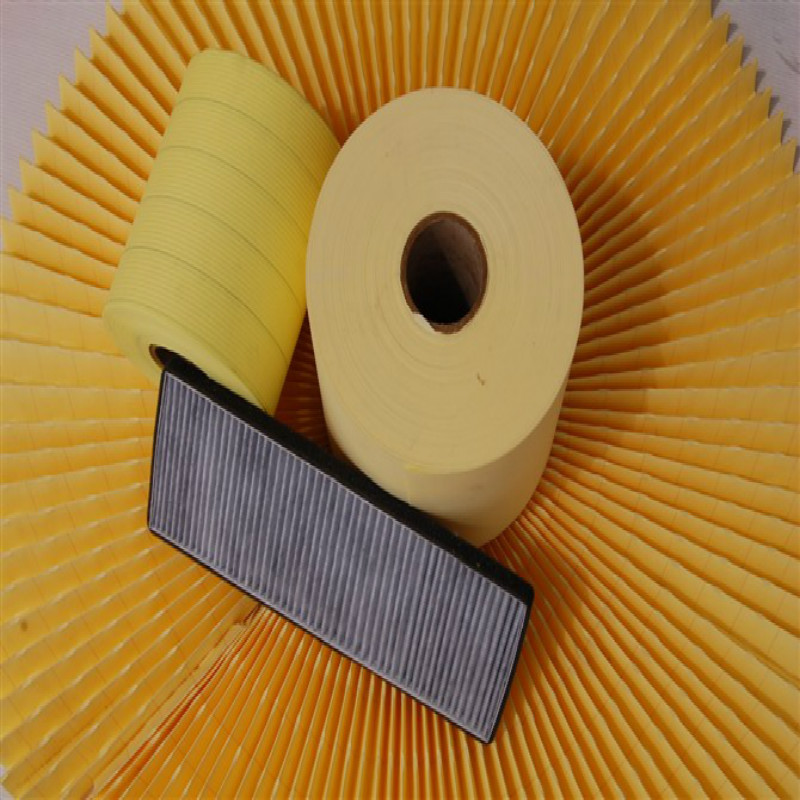Introduction to Advanced Air Filtration Materials
In the rapidly evolving automotive sector, the performance and longevity of vehicle engines are critically dependent on the quality of their air intake system. At the core of this system is the air filter, and more specifically, the specialized automotive air filter paper that forms its filtration medium. This material is engineered to meticulously trap airborne contaminants such as dust, pollen, soot, and abrasive particles, preventing them from entering the engine’s combustion chambers. By doing so, it safeguards against premature engine wear, maintains optimal fuel efficiency, and ensures consistent engine performance.
The selection and design of automotive air filter paper are complex processes, involving a deep understanding of material science, fluid dynamics, and stringent industry standards. Modern advancements in filtration technology have led to the development of papers with enhanced dust-holding capacity, improved filtration efficiency, and reduced pressure drop, all crucial for meeting the demands of contemporary automotive powertrains, from conventional internal combustion engines to hybrid and electric vehicle cooling systems.
This article delves into the critical aspects of advanced automotive air filter paper, exploring its manufacturing process, key technical specifications, diverse application scenarios, and the tangible advantages it offers. We aim to provide B2B decision-makers and engineers with a comprehensive understanding of this vital component, highlighting industry trends, customization options, and the rigorous standards that ensure its reliability and performance.
Industry Trends in Air Filter Media
The global automotive industry is undergoing transformative changes, driven by stricter emission regulations, the proliferation of electric and hybrid vehicles, and an increasing focus on vehicle longevity and cabin air quality. These trends directly influence the development and demand for high-performance automotive air filter paper.
- Enhanced Filtration Efficiency: There’s a persistent drive for higher filtration efficiency (e.g., up to 99.9% for particulate matter 2.5) without significantly increasing pressure drop. This often involves multi-layer media and advanced fiber structures.
- Extended Service Life: Automotive manufacturers seek filter media capable of prolonged operational life, reducing maintenance intervals and costs for end-users. This requires filter papers with superior dust-holding capacity and structural integrity.
- Sustainable Materials: With a growing emphasis on environmental responsibility, the industry is exploring eco-friendly and biodegradable filter media, as well as production processes that minimize ecological footprints.
- Compact Design: As engine compartments become more densely packed, there’s a need for compact filter designs. This necessitates filter paper that can achieve high performance in smaller pleat depths and filter volumes.
- Specialized Applications: The rise of autonomous vehicles and advanced driver-assistance systems (ADAS) often requires specific filtration solutions for sensitive electronic components, creating new demands for specialized filter media beyond traditional engine air filters.
These trends underscore the importance of continuous innovation in filter media technology, pushing manufacturers to develop advanced paper formulations and manufacturing techniques.

Detailed Manufacturing Process Flow of Automotive Air Filter Paper
The production of high-quality automotive air filter paper is a sophisticated process that integrates precision engineering with advanced material science. It begins with carefully selected raw materials and progresses through several meticulously controlled stages to ensure the final product meets stringent performance specifications.
Product Materials:
- Cellulose Fibers: Typically wood pulp (hardwood and softwood) provides the base structure due to its excellent porosity and strength.
- Synthetic Fibers: Polyester, polypropylene, or glass microfibers are often incorporated to enhance filtration efficiency, thermal stability, and moisture resistance.
- Resins: Phenolic resins or acrylic latex binders are used to impregnate the fiber matrix, providing stiffness, wet strength, and chemical resistance.
- Additives: Flame retardants, anti-microbial agents, and surface treatments may be added for specific application requirements.
Manufacturing Process Steps:
-
1. Fiber Preparation & Blending: Raw cellulose and synthetic fibers are pulped, refined, and blended in precise ratios in a slurry. This casting process ensures homogeneous distribution of fibers critical for consistent pore structure.
Schematic Step: [Fibers] -> [Pulping & Refining] -> [Blender] -> [Slurry]
-
2. Paper Formation (Wet-laid Process): The fiber slurry is delivered to a paper machine (e.g., Fourdrinier machine) where water is drained, forming a wet web of intertwined fibers. This is a critical stage for controlling basis weight and porosity.
Schematic Step: [Slurry] -> [Paper Machine (Wire Section)] -> [Wet Web]
-
3. Impregnation & Resin Curing: The wet web or dried paper is impregnated with thermosetting resins (e.g., phenolic resin). The paper then passes through a drying and curing oven where the resin polymerizes, bonding the fibers together and providing stiffness and stability. This process is analogous to a controlled forging, strengthening the material at a molecular level.
Schematic Step: [Wet Web] -> [Resin Impregnation] -> [Curing Oven (Heat Treatment)] -> [Dry Filter Paper]
- 4. Corrugation/Pleating (if applicable for final filter): While not part of the paper manufacturing, the paper is often later pleated using specialized CNC machinery to increase surface area and dust-holding capacity.
- 5. Slitting & Finishing: The cured paper rolls are slit into desired widths and wound onto cores, ready for shipment to filter manufacturers.
Testing Standards:
Our materials undergo rigorous testing to comply with international standards, ensuring consistent quality and performance:
- ISO 5011: Establishes a method for testing the performance of air filter elements for internal combustion engines and compressors.
- DIN 53857: Specifies methods for determining the bursting strength of paper and board.
- ASTM F778: Standard test method for gas flow resistance of filtration media.
- JIS D 1612: Japanese Industrial Standard for automotive air cleaner elements.
Service Life & Target Industries:
The service life of auto filter paper varies depending on the operating environment and application, typically ranging from 15,000 to 30,000 miles for passenger vehicles, but significantly less in severe dust conditions or heavy-duty industrial applications. Our products serve a broad spectrum of industries:
- Automotive (Passenger & Commercial): Engine air intake, cabin air filtration.
- Heavy-Duty Equipment: Construction, agriculture, mining vehicles.
- Industrial Filtration: Petrochemical, metallurgy, power generation, water supply & drainage.
Advantages in Typical Application Scenarios:
- Energy Saving (Fuel Efficiency): By maintaining a low and stable pressure drop, our filter papers ensure optimal air-fuel mixture, contributing to better combustion and reduced fuel consumption.
- Corrosion Resistance: Specialized resin treatments provide excellent resistance to moisture, oils, and automotive chemicals, extending filter life even in harsh operating conditions.
- Extended Engine Life: Superior filtration efficiency protects critical engine components from abrasive particle wear, significantly prolonging engine service intervals and overall lifespan.

Technical Specifications & Performance Parameters
The performance of car air filter paper is characterized by several key technical parameters, each vital for ensuring optimal engine protection and efficiency. Understanding these specifications is paramount for selecting the right filtration medium for specific automotive applications.
Key Technical Parameters:
- Basis Weight (g/m²): The weight of the paper per unit area, influencing its density and structural integrity. Typical range: 100-250 g/m².
- Air Permeability (mm/s or L/m²/s): A measure of how easily air passes through the paper at a given pressure differential. Higher permeability often correlates with lower pressure drop.
- Filtration Efficiency (%): The percentage of particles, specified by size, that the filter paper removes from the airstream. Usually tested with standardized dust (e.g., ISO 12103 A2 fine test dust). Modern automotive filters typically achieve >99.5% for particles >5 microns.
- Pressure Drop (Pa or mmH₂O): The resistance to airflow exerted by the filter paper. A lower initial pressure drop is desirable to maximize engine power and fuel economy.
- Dust Holding Capacity (g/m²): The total amount of dust the filter paper can retain before reaching a predefined terminal pressure drop. A higher capacity translates to a longer service life.
- Burst Strength (kPa): The ability of the paper to withstand internal pressure without rupturing, crucial for maintaining structural integrity under varying airflow conditions.
- Thickness (mm): The caliper of the paper, influencing pleatability and overall filter element dimensions.
- Pore Size (µm): The average size of the openings within the filter medium, directly affecting filtration efficiency.
- Wet Burst Strength (kPa): Crucial for maintaining integrity when exposed to moisture.
Typical Product Specification Table for Automotive Air Filter Paper:
| Parameter | Unit | Typical Value Range | Test Standard |
|---|---|---|---|
| Basis Weight | g/m² | 120 – 200 | ISO 536 |
| Thickness | mm | 0.45 – 0.70 | ISO 534 |
| Air Permeability | L/m²/s @200Pa | 150 – 450 | ISO 9237 |
| Filtration Efficiency (initial) | % (0.5µm particles) | >99.5 (for A2 fine test dust) | ISO 5011 |
| Dust Holding Capacity | g/m² (until ΔP increases by 250Pa) | 150 – 250 | ISO 5011 |
| Burst Strength (Dry) | kPa | >400 | ISO 2758 |
| Burst Strength (Wet) | kPa | >100 | ISO 2758 |
| Operating Temperature | °C | -30 to +120 | Internal Test |

Application Scenarios and Technical Advantages
The versatility and robust performance of advanced car air filter paper enable its deployment across a multitude of application scenarios within the automotive and heavy-duty sectors.
Primary Application Scenarios:
- Passenger Vehicle Engine Air Filters: Providing pristine air for combustion in gasoline and diesel engines, directly impacting power output, fuel economy, and emissions.
- Commercial Vehicle & Heavy Equipment Air Filters: Crucial for trucks, buses, construction machinery (excavators, loaders), agricultural vehicles, and mining equipment operating in extremely dusty and harsh environments.
- Cabin Air Filters (HVAC Systems): While often using non-woven synthetic media, advanced papers with activated carbon layers are increasingly used to filter out particulate matter, allergens, odors, and harmful gases, enhancing occupant comfort and health.
- Specialized Filtration: Used in air intake systems for vehicle auxiliary components like compressors, turbochargers, and in some cases, battery cooling systems for electric vehicles.
Key Technical Advantages:
- Superior Particle Capture: Engineered with controlled pore structures to achieve high filtration efficiencies, effectively capturing particles ranging from fine dust to pollen and soot, preventing engine abrasion and component fouling.
- Optimized Airflow Dynamics: Designed to maintain a low initial pressure drop, ensuring unrestricted airflow to the engine. This translates to sustained engine power, better throttle response, and improved fuel efficiency throughout the filter’s service life.
- Extended Dust Holding Capacity: The unique fiber matrix and resin impregnation allow for significant dust loading before the filter requires replacement, leading to longer service intervals and reduced operational costs.
- High Mechanical Strength: Reinforced with specialized resins, our filter papers exhibit exceptional burst strength and pleat stability, resisting deformation or tearing even under high differential pressures or pulsation.
- Moisture & Chemical Resistance: Treated to resist moisture absorption and degradation from oils, fuels, and other common automotive chemicals, ensuring consistent performance in diverse environmental conditions.
- Thermal Stability: Capable of performing reliably across a wide range of operating temperatures, from extreme cold to high engine bay heat, without compromising structural integrity or filtration efficiency.
These advantages collectively contribute to maximizing engine lifespan, enhancing vehicle performance, and reducing total cost of ownership for automotive fleet operators and individual vehicle owners alike.

Vendor Comparison: Evaluating Automotive Air Filter Paper Suppliers
Choosing the right supplier for auto filter paper is a strategic decision for filter manufacturers. It involves evaluating not just product specifications but also manufacturing capabilities, quality control, R&D investment, and customer support. Below is a conceptual comparison framework:
Key Comparison Criteria:
- Product Portfolio: Breadth of offerings, including different basis weights, efficiencies (e.g., standard, high-efficiency, multi-layer), and specialized treatments.
- Manufacturing Capacity & Lead Time: Ability to meet demand fluctuations and deliver within reasonable lead times.
- Quality & Certifications: Adherence to international standards like ISO 9001, IATF 16949 (for automotive suppliers), and specific material testing standards (e.g., ISO 5011, ASTM F778).
- Technical Support & R&D: Access to expert technical assistance, material science knowledge, and continuous innovation in filter media.
- Customization Capabilities: Flexibility in tailoring specifications to unique application requirements.
- Cost-Effectiveness: Balanced against performance and service life, not just initial purchase price.
Comparative Analysis Table (Illustrative):
| Feature | Our Company (FiltersMaterial.com) | Competitor A (General) | Competitor B (Specialized) |
|---|---|---|---|
| Filtration Efficiency (ISO 5011) | Up to 99.9% (0.5µm) | 98-99% (0.5µm) | 99.5% (0.5µm) |
| Dust Holding Capacity (g/m²) | Excellent (180-250) | Good (120-180) | Very Good (150-220) |
| Pressure Drop (Initial) | Optimized Low | Moderate | Low |
| Wet Burst Strength (kPa) | Superior (>120) | Average (70-90) | Good (90-110) |
| Customization Options | Full (Basis Weight, Porosity, Additives) | Limited | Moderate |
| Certifications | ISO 9001, IATF 16949 Compliant | ISO 9001 | ISO 9001, ISO 14001 |
Our commitment to innovation and quality ensures that our automotive air filter paper not only meets but often exceeds industry benchmarks, providing filter manufacturers with a reliable foundation for high-performance products.

Customized Solutions and Application Case Studies
Recognizing that standard solutions may not always address unique challenges, we specialize in providing customized auto filter paper formulations. Our engineering team collaborates closely with clients to develop filtration media tailored to specific performance criteria, environmental conditions, and cost targets.
Customized Solutions Capabilities:
- Tailored Fiber Blends: Adjusting ratios of cellulose and synthetic fibers to achieve desired balance of efficiency, pressure drop, and dust holding capacity.
- Specialized Resin Impregnation: Developing unique resin systems for enhanced wet strength, oil resistance, flame retardancy, or chemical stability.
- Varying Basis Weights & Thicknesses: Producing filter paper with specific physical dimensions to fit compact filter designs or high-airflow applications.
- Gradient Density Media: Designing multi-layer structures or single-layer media with varied fiber densities to optimize particle capture and dust loading throughout the depth of the filter.
Application Case Studies:
Case Study 1: Heavy-Duty Mining Equipment in Arid Regions
A leading manufacturer of heavy-duty mining trucks faced frequent air filter clogging and premature engine wear in their vehicles operating in highly arid, dusty environments. Standard filter papers offered insufficient dust-holding capacity and inadequate protection against sub-micron silica particles. We collaborated to develop a specialized automotive air filter paper with a dual-layer synthetic-cellulose blend, featuring an increased basis weight and a novel resin treatment for enhanced wet strength and abrasion resistance. The new filter paper delivered a 30% increase in dust holding capacity and extended filter service life by 50%, significantly reducing downtime and maintenance costs for the client.
Case Study 2: High-Performance Sports Car Engine Protection
An OEM of luxury sports cars required an air filter medium that offered extremely low pressure drop to maximize engine horsepower, while simultaneously providing superior filtration efficiency to protect finely tuned components. Our solution involved a very high-permeability synthetic-fiber enriched paper, meticulously designed for minimal airflow restriction without compromising particle capture. Utilizing advanced manufacturing techniques, we achieved a filter paper with a 15% lower initial pressure drop compared to the previous material, directly contributing to a measurable increase in engine responsiveness and peak power output, while maintaining ISO 5011 particle filtration standards.

Trustworthiness: FAQ, Lead Time, Warranty, & Support
Frequently Asked Questions (FAQ):
- Q1: What makes your automotive air filter paper superior?
- A1: Our filter papers are engineered with optimized fiber blends and proprietary resin formulations, leading to a superior balance of high filtration efficiency, low pressure drop, and extended dust-holding capacity, validated by ISO 5011 standards.
- Q2: Can your filter paper withstand extreme temperatures and harsh chemicals?
- A2: Yes, our specialized resin treatments enhance thermal stability, allowing our paper to perform reliably from -30°C to +120°C. They also provide excellent resistance to automotive oils, fuels, and moisture.
- Q3: How do you ensure consistency in product quality?
- A3: We adhere to stringent quality management systems, including ISO 9001 and IATF 16949 compliant processes. Every batch undergoes comprehensive testing for critical parameters such as basis weight, thickness, air permeability, and burst strength.
- Q4: Are your materials environmentally friendly?
- A4: We continuously invest in R&D to explore sustainable fiber sources and environmentally conscious manufacturing processes to reduce our ecological footprint.
Lead Time & Fulfillment Details:
Our standard lead time for regular stock items of car air filter paper is typically 2-4 weeks from order confirmation. For customized solutions or large-volume orders, lead times may vary and will be communicated clearly during the quotation process. We maintain robust inventory management and flexible production schedules to meet urgent demands efficiently. Expedited shipping options are available upon request.
Warranty Commitments:
We stand behind the quality of our automotive air filter paper. All products are warranted to be free from defects in material and workmanship for a period of 12 months from the date of shipment, provided they are stored and used under recommended conditions. Our commitment extends to ensuring products meet all agreed-upon specifications and performance criteria.
Customer Support Information:
Our dedicated customer support team and technical experts are available to assist with product selection, technical inquiries, customization requests, and after-sales support. We provide comprehensive documentation, testing reports, and application guidance. You can reach us via:
- Email: sales@filtersmaterial.com
- Phone: [Insert Phone Number Here, e.g., +1-XXX-XXX-XXXX]
- Website: Visit our Contact Us page for online inquiry forms and more details.

Conclusion
The role of high-performance automotive air filter paper in safeguarding engine integrity and optimizing vehicle performance cannot be overstated. As automotive technologies advance and environmental regulations become more stringent, the demand for sophisticated filtration media will only intensify. Our commitment to continuous innovation, rigorous quality control, and client-focused customization ensures that we remain at the forefront of providing solutions that meet these evolving challenges.
Partnering with us means gaining access to expert material science, advanced manufacturing capabilities, and a dedicated support system designed to enhance your product offerings and solidify your market position.
References:
- ISO 5011: Road vehicles — Filtration — Filter elements for internal combustion engines and compressors — Performance test method. International Organization for Standardization.
- ISO 9001: Quality management systems — Requirements. International Organization for Standardization.
- IATF 16949: Quality management system requirements for automotive production and relevant service parts organizations. International Automotive Task Force.
- Wang, P., et al. (2018). “Developments in Air Filter Media for Automotive Applications.” Journal of Filtration and Separation, Vol. 28, No. 3, pp. 112-120.
- Liu, S., et al. (2020). “Advanced Materials for High-Efficiency Automotive Air Filters.” Filtration & Separation Technology, Vol. 32, No. 1, pp. 45-53.
Hebei Fangyu Filter Material Technology Co.,Ltd is the leading innovative developer and manufacturer all kinds of filter materials in China.pocket filter media factory Located in the economically developed Handan Hebei specialized in various kinds of filter materials from Synthetic Media,Paint stop Filter Media Pre- filter Non Woven Fabric ,Wire Mesh Backed Laminated Filter Media,Ceiling filter Auto Cabin Filter Media, polypropylene filter media, Glass Microfiber Filter Media Nonwoven Fabric,Pre- filter non woven fabric, activated carbon filter materials, EN779 bag filter materials, HEPA filter media, air filter HEPA filter media and Filter Accessories.Our filter materials have passed ISO9001:2000 quality certification since 2005.Certified by ISO9001, UL2 and SGS, with emphasis on quality and service. Our strength is the ability to find innovative ways to meet marketplace or product requirements.activated filter media price|super blog